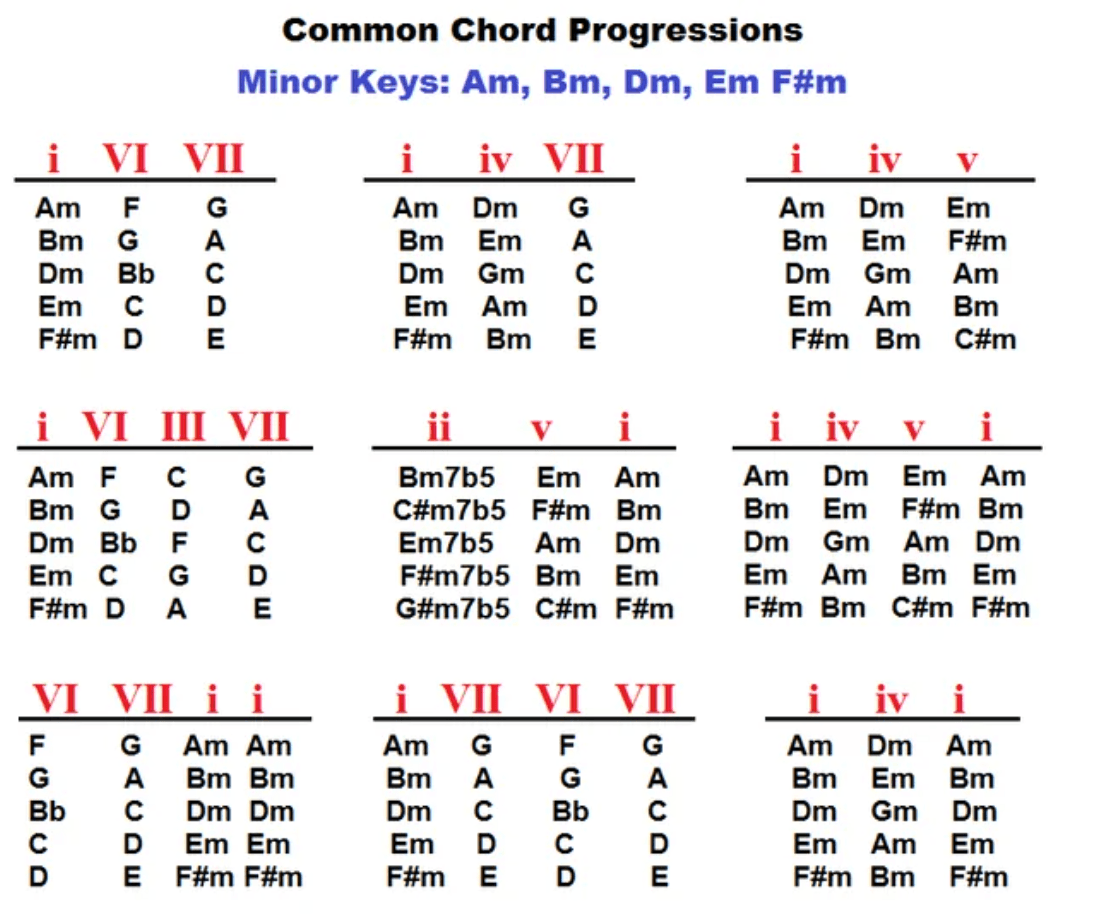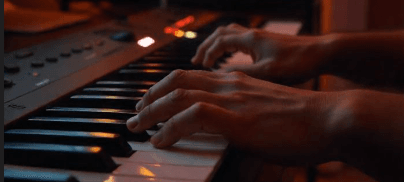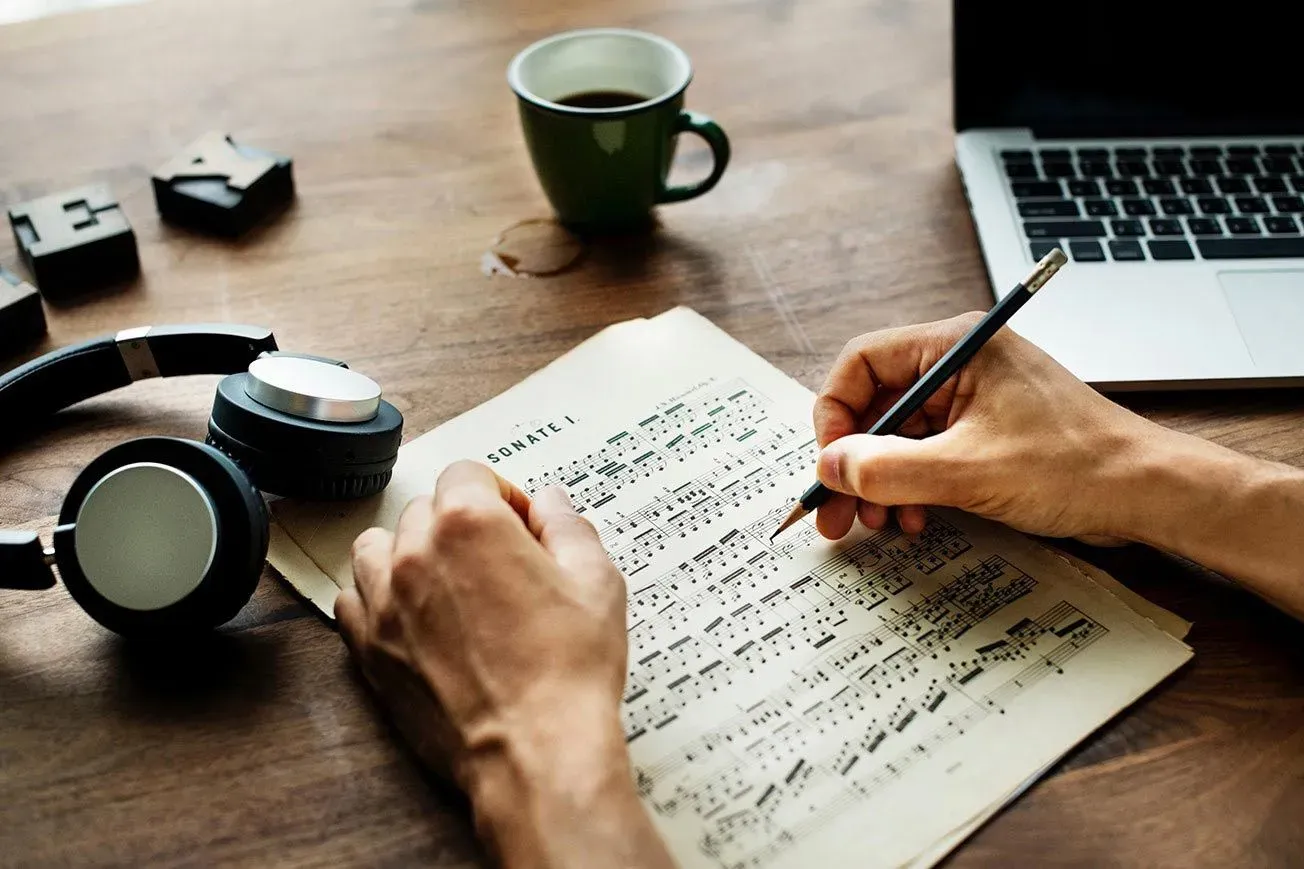zThere's no denying it: figuring out how to use AI to create music is reshaping the contours of the modern audio production landscape. But what’s the backstory here?
Let’s plug in and play through the symphony of AI and music.

A Flashback: AI in the Music Industry History
Music and technology have always waltzed together, from primitive instruments to the dazzling AI-driven mixes of today.
Let's hit rewind and journey through the historical symphony of AI's evolution in the musical realm.
The Humble Beginnings: 1950s - 1970s
Long before AI became a buzzword, the 1950s introduced us to the world of algorithmic compositions. These early compositions were often simple, formulaic, and yes, a tad robotic.
It was a time of exploration, where music met mathematics in an intriguing tango.
This era laid the foundation for the AI-driven revolution to come, even though the results then were more experimental than exemplary.
Growing Pains: 1980s - 1990s
The late 20th century saw AI trying to grapple with the vast intricacies of music. With the boom in computer technology, AI began a transformation.
It was during this period that researchers started toying with the idea of neural networks, mimicking human brain processes.
However, the AI of this period still found it challenging to capture the emotional essence of compositions.
The Renaissance: 2000s - Present
Welcome to the age of sophistication! Today, AI doesn't just replicate tunes—it understands them. Modern algorithms analyze vast musical datasets, picking up patterns, styles, and even moods.
From predicting the next big hit to assisting artists in audio production, AI has transitioned from being a mere imitator to a creative collaborator.
It's now a tool that augments an artist's vision, ensuring the music retains its human touch while leveraging technological precision.
The Future Beckons
The journey of AI in the music industry showcases how perseverance and innovation can harmonize to push boundaries. As we look to the future, AI is poised to play an even more significant role in audio production.
It won't replace the soulful touch of human artists but will serve as a partner, facilitating creativity and ensuring artists' visions are realized with unparalleled clarity.
Understanding AI Music Tool Possibilities
In today's digital music landscape, audio AI tools have emerged as indispensable allies for both seasoned artists and budding enthusiasts.
Like a multi-instrumentalist in an orchestra, these tools play various roles, each designed to amplify the creation and dissemination of music.
Inspiration Generator Tools
Every artist occasionally encounters the dreaded writer's block, where notes and melodies just won't come. That's where inspiration generators come into play.
Imagine having a virtual muse at your fingertips. Whether it's a striking chord progression or an earworm of a hook, these tools break creative barriers by offering fresh musical ideas.
It's about jumpstarting the brain and reigniting the musical flames when you're feeling stuck.
Music Creation Tools
Music isn't just about a single note; it's about how these notes converse with each other to weave a story. Modern AI music tools have graduated from basic algorithms to sophisticated systems that craft entire melodies.
Input preferences like genre, mood, or even tempo, and watch as the tool composes a track tailored for you.
Lyric Assistance Tools
Music and lyrics are two sides of the same coin, with one lending voice to the other's soul. AI lyric tools, equipped with vast linguistic databases, can suggest rhyming lines, thematic ideas, or even entire verses.
So, the next time you're hunting for that perfect line to complete your chorus, know that AI has got your poetic back.
Production & Mixing Tools
Music production is an art, a delicate balance of layering tracks, synchronizing beats, and ensuring every instrument shines. It's where the magic truly happens. AI music tools designed for production and mixing optimize this process, assisting artists in achieving that perfect sound balance.
Be it EDM's pulsating beats or the soothing harmonies of an acoustic ballad, AI ensures your track is mix-mastered to perfection.
AI Music Marketing Tools
In the digital age, creating music is just one part of the equation. Ensuring it reaches the right audience is equally crucial. Enter AI-driven marketing tools.
They simplify audio production intricacies like SEO, meticulously craft YouTube descriptions, and even conjure those engaging Instagram captions that ensure your track doesn't just play—it resonates.
The Empress Suite of AI Music Tools
In the vast realm of audio AI tools, the Empress Suite emerges as a symphony of innovation. This isn't your standard utility belt—it's the masterpiece of music-making.
From crafting the foundational notes of a track to seamlessly integrating them into chart-topping compositions, Empress is the maestro's baton every musician needs. Let’s delve deeper into the offerings of the Empress Suite.
1. Melody Mind: The Composer's Dream
Step into the sophisticated realms of AI melody generation with Melody Mind. This tool is like having a muse on-demand. With just a simple input—be it an instrument like a violin or a flute, foundational chords, preferred genre such as classical or jazz, and the bpm (beats per minute) of your choice—Melody Mind crafts melodies that resonate.
Example: Picture a slow jazz piece; with a saxophone as your instrument of choice and a bpm of 60, Melody Mind can weave a soulful melody reminiscent of moonlit city streets.
2. Lyric Lab: Crafting Stories with Words
Unlock the poet within with the Lyric Lab. This tool needs just a hint—maybe you're aiming for a 'Futuristic Sci-Fi' theme or desiring an 'ominous' tone. Input these into the Lyric Lab, and it will conjure up lyrics that evoke emotions, transporting listeners to worlds beyond.
Example: For an ominous, Futuristic Sci-Fi theme, expect verses echoing dystopian landscapes and civilizations lost in time.
3. Chord Candy: The Foundation of Every Song
Music, in essence, is a conversation of chords. Chord Candy is your trusty companion in this dialogue. Input your choice of instrument, the musical key, genre, and bpm, and let Chord Candy design a chord progression that's both delightful and intriguing.
Example: Opting for a guitar, in the key of G major, with a rock genre and a bpm of 120, Chord Candy might generate a progression that screams of a thrilling concert experience.
4. Song Idea Generator: Emotion in Every Note
Every song tells a story, driven by emotion. The Song Idea Generator is your storyteller. Just feed in an emotion—whether it's the melancholy of 'Depression' or the highs of 'Euphoria', and let the tool spin a tale.
Example: Inputting 'Euphoria' might result in a song idea that speaks of sunlit days, infectious laughter, and celebrations.
5. Bass Brain: Laying the Groovy Foundations
Every track needs a robust base, and that’s where Bass Brain comes in. Whether it's a funky slap bass or a pulsating synth bass, coupled with your chords, genre, and bpm, Bass Brain crafts basslines that anchor and elevate your track.
Example: Picture an electronic track with a synth bass, techno genre, and bpm of 128. Bass Brain could produce a bassline that keeps the dance floor alive.
6. Drums De Dior: The Heartbeat of Your Track
Rhythms define the pulse of any composition. Drums De Dior, with just a genre and bpm input, generates drum beats that add that vital heartbeat to your music.
Example: For a hip-hop track with a bpm of 90, expect Drums De Dior to design beats that have the audience nodding in sync.
7. Harmonious Hitmaker: From Titles to Top Charts
Ever wondered how some songs become sensations? Harmonious Hitmaker could be the secret sauce. Input the emotion and genre, and watch as it transforms your song titles into potential hits.
Example: If you feed in 'nostalgia' as the emotion and 'country' as the genre, Harmonious Hitmaker might shape a song title like "Whispers of the Old Porch" into a song that listeners play on loop.
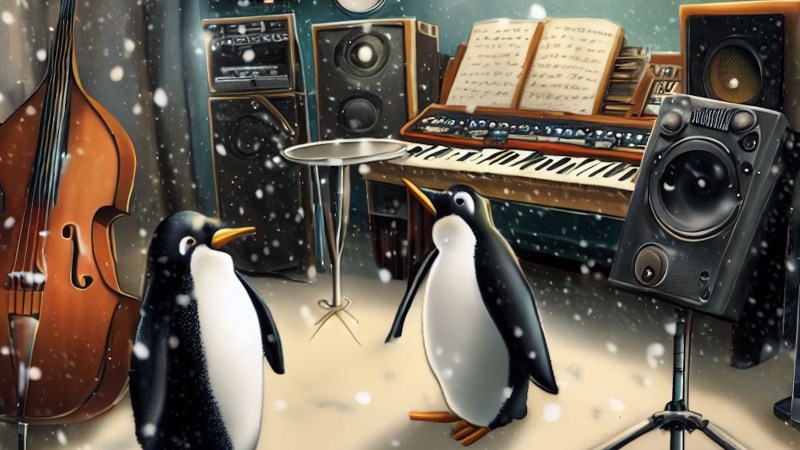
Other AI Music Tools in the Mix
The audio AI tool cosmos is vast and diverse, pulsating with innovation at every beat.
1. Soundraw: Tailored Tunes on Demand
Soundraw emerges as a robust music production tool, utilizing AI to compose royalty-free music tailored for creators.
Its ingenious design allows for the seamless generation of soundtracks for videos, bringing forth auditory elegance with a simple click. With Soundraw:
- Personalized Soundscapes: Define the mood, genre, and duration, and let Soundraw’s AI craft the melody.
- Flexibility and Freedom: Post-download, you retain the license even if you choose to unsubscribe.
- Precision Tailoring: Customize a song to your exact specifications, tweaking key, tone, and genre.
- Instantaneous Composition: Hear your song and pair it with your video before making the final download.
- Ethical Standards: Their unique policy ensures the internet isn’t inundated with AI-generated music.
While Soundraw is a formidable tool, it caters more towards music producers with prior experience rather than absolute novices.
2. Soundful: Audio Excellence for All
For creators seeking an intuitive platform with a rich library, Soundful emerges as the beacon. Its mission is to democratize music creation, offering tools for both neophytes and maestros.
- All-inclusive Tools: Generate tracks that align with your taste, whether you're a novice or a seasoned musician.
- Commercial Expansion: With direct selling options on prominent platforms, Soundful ensures your creations find their deserving audience.
3. Jukedeck: Neural Nuances in Music
Dipping into neural networks for inspiration, Jukedeck offers a fresh perspective on AI-driven music.
- Endless Customizations: Modify track tempo and duration to align with your preferences.
- Budget-friendly Licensing: Jukedeck’s flexible pricing structure ensures premium compositions don't break the bank.
- Boundless Creativity: With AI at its core, every Jukedeck track is unique, pushing conventional musical boundaries.
4. Amper Music: Effortless Audio Aesthetics
Amper Music stands as a testament to simplicity. Crafted for content creators, it reduces music generation to a near-artless task.
- Genre Selection Made Easy: Opt for your preferred genre and let Amper handle the intricate composition details.
- Expeditious Compositions: With its advanced AI, music creation is rapid and resonant.
- Cloud Collaboration: Store your compositions in the cloud, ensuring easy access and shared creativity.
5. Musenet: The Melodic Maestro
Basking in the glow of AI, Musenet offers compositions that range from the classical era's charm to modern pop's dynamism.
- Instrumental Indulgence: Craft tracks with up to 10 different instruments, ensuring a rich auditory experience.
- Stylistic Sophistication: From Classical to the Classic Rock, Musenet’s AI understands and replicates varying styles with finesse.
- Deep Learning Dynamics: Drawing inspiration from transformer models akin to GPT-2, Musenet ensures compositions are intricate and harmonious.
Your Handy Assistant, Not Your Replacement
In the dizzying whirlwind of technological advancements, it's easy to get caught up and overwhelmed by the prowess of AI.
Its imprint on the music industry is undeniable, from simplifying complex processes to generating intricate tunes.
But as we stand at this crossroads of tradition and technology, it's vital to keep perspective.
Tools, Not Taskmasters
AI music platforms serve as brilliant facilitators. They can effortlessly suggest a chord, whip up a catchy melody, or masterfully mix an entire track.
But, akin to a painter's brush or a writer's pen, they remain just tools. It's the artist's hand that guides them, the musician's soul that breathes life into compositions.
Emotion: The Uncharted Territory
Computers process data, understand patterns, and execute commands. They're efficient, accurate, and unerringly consistent.
Yet, when it comes to capturing the raw, unfiltered emotion that resonates in a poignant ballad or the exhilaration in an upbeat track, AI has its limits.
The heartache, the joy, the nostalgia, and the hope—the myriad emotions music evokes—are uniquely human experiences. While AI can mimic patterns, the soul and emotion behind a song are irreplaceably yours.
Storytelling: The Human Touch
Every song tells a story, be it an epic tale or a fleeting moment. The narrative, infused with personal experiences, dreams, and memories, can't be replicated by algorithms.
AI might provide a structure, a framework, but the heart of the story? That’s where you come in. These tales, woven with threads of individuality, make music universally personal.
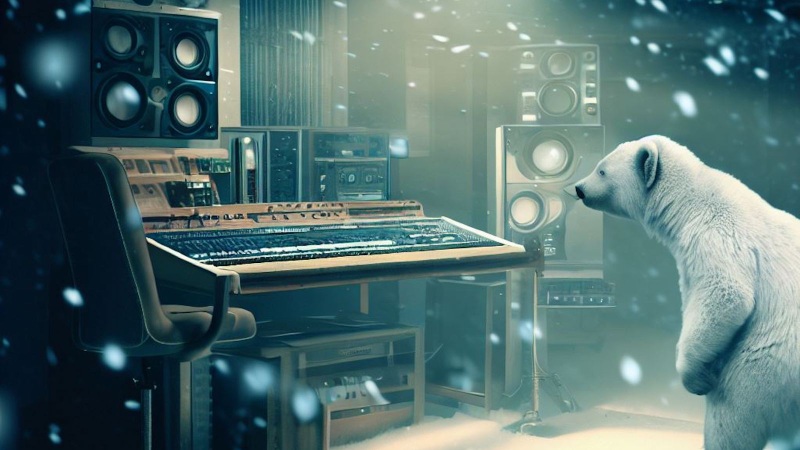
Empress: AI Musical Journey
Looking to jumpstart your musical journey or take it to new heights? With Empress, you’ve got a co-pilot ready to soar.
Dive into a world where every note resonates, every melody tells a story, and every beat is perfection. Turn your visions into symphonies. Discover Empress today.
FAQs: Using AI in Music Creation
Q1: Can AI create a hit song on its own?
No, while AI can generate melodies and lyrics, the essence and emotion come from human touch.
Q2: How do AI music tools learn?
Through vast datasets and neural networks. They analyze patterns and structures from existing music.
Q3: Are AI-generated tracks royalty-free?
It depends on the platform. Some, like Jukedeck, offer royalty-free compositions.
Q4: Is every AI music tool the same?
No, each has its unique strengths, algorithms, and intended users.
Q5: Can AI tools understand and replicate emotions in music?
They can mimic patterns, but true emotion is uniquely human.
Follow the future of music with Empress. Check out our blog to learn how you can effectively use these AI music tools.
